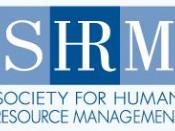�PAGE �35� � PAGE �33�
Introduction
As we enter the new millennium more and more companies are recognizing the importance of managing their human resources as effectively as possible. They are also recognizing that doing so, however, cannot be done without recognition and incorporation of the global context. It is virtually impossible to read a business periodical or newspaper anywhere in the world without seeing stories detailing the success of a company due to how effectively it manages its people. As the environment becomes more global, managing people also becomes more challenging, more unpredictable and uncertain and more subject to rapid change and surprise. Thus what we are witnessing within human resource management is the rapid appreciation for and development of all aspects of global and international activities and issues associated with and affected by human resource management. And because the importance of managing people effectively in the global context is so great, many companies are devoting a great deal more time, attention, skill and effort into doing it well.
Together, academics and practitioners are doing more work than ever on understanding and advancing our knowledge of issues in and activities associated with managing human resources within a global context. At the same time they are also relating the basics of human resource management with the context of the company.
Within the global context, two of the areas of managing human resources have evolved: comparative human resource management and international human resource management. Within the context of the company, the area of strategic human resource management has evolved. In essence, what we have today are four general areas of study regarding managing human resources: 1) comparative human resource management; 2) international human resource management; 3) strategic human resource management; and 4) human resource management. Over the past twenty-five years these...


